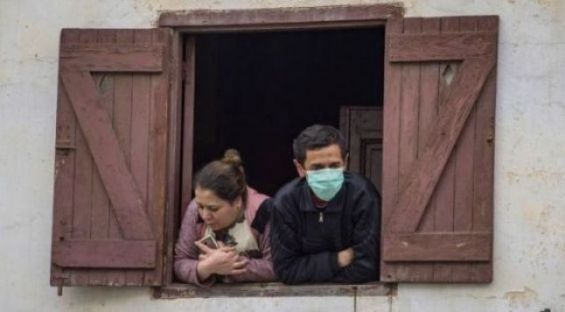Earlier this week, Morocco announced that it is implementing a new protocol when managing active coronavirus cases. In a document signed by the Health Minister, health authorities revealed that asymptomatic coronavirus patients can spend the treatment period at home.
During the 14-day period, they will have to remain in contact with health authorities who promised to monitor their situation. The new protocol was introduced to help health authorities better manage the increasing number of Covid-19 cases registered recently.
However, this change raises a series of questions, especially when thinking of Moroccans who can’t afford home-isolation or others who live in crowded houses alongside other family members.
«The protocol does not intervene to change the lifestyle of the individual»
«There is a problem but also several ways to solve it», Professor Mustapha Ennaji, a virologist and director of the laboratory of virology at the Hassan II University in Casablanca, told Yabiladi on Friday. «Hospitals' capacity remains limited as the number of cases is rapidly increasing. Priorities change towards 'admitting people with severe conditions and who require hospitalization'», he explained.
The virologist explained that asymptomatic cases will be provided the treatment they need and that they can recover in a few weeks. «If we continue on the same trend, by hospitalizing all positive cases, we will have crowded hospitals, with no room for patients in need of hospitalization just like what happened in Italy and Germany», he warned.
«It's a question of resources. Ours are limited and the health sector is fragile. We must therefore give priority to people suffering from chronic illnesses», he explained.
«Each measure has advantages and disadvantages. When we say that the person must have their own room, it is to prevent them from infecting the rest of their family. The protocol does not intervene to change the lifestyle of people but solves a problem. The person in question must therefore limit their contact with others».
«In any case, if the person tests positive, the members of their family are also tested and they are isolated in case they are also contaminated», he added.
Medical and paramedical units to monitor patients
«The problem of treating patients on an outpatient basis is not unique to Morocco. People are being treated elsewhere under the same conditions but the number is increasing significantly, we are in phase III of the epidemic in Morocco and we have to free facilities», Prof. Saïd Motaouakkil explained.
«Patients can self-isolate at home, while respecting preventive measures and staying away from others», he assured, recalling that «there will be a telephone follow-up with the patient».
«As soon as they feel that their case is worsening, the patients will notify the nursing teams who take care of them to get transferred to a hospital».
Prof. Mustapha Ennaji specifies, moreover, that it is a «positive anticipatory measure». «These patients are only sent home for treatment and when it is certain that they will be able to recover without complications», he insisted. Because, above all, «the complication usually occurs in the absence of medical care», he concludes.





 chargement...
chargement...













